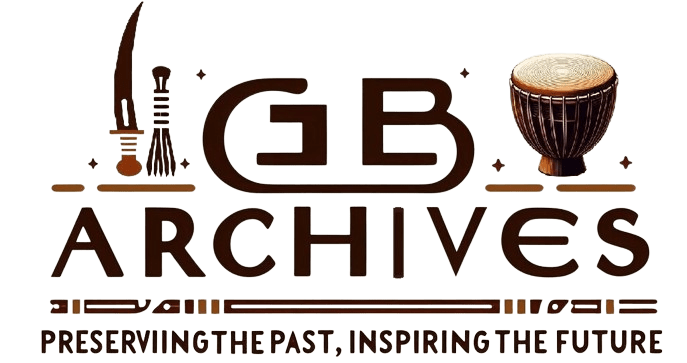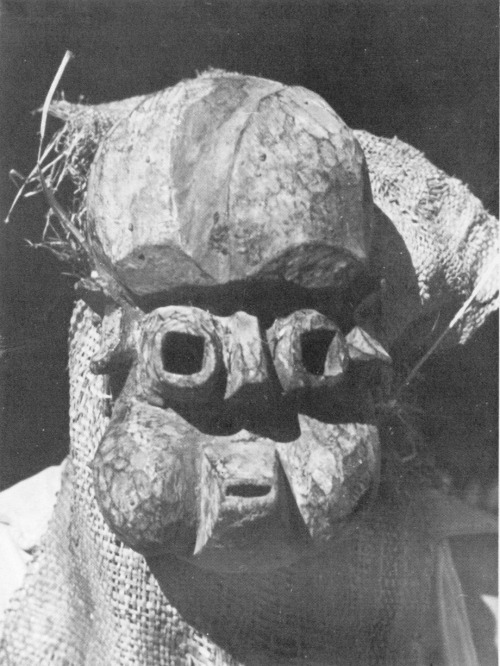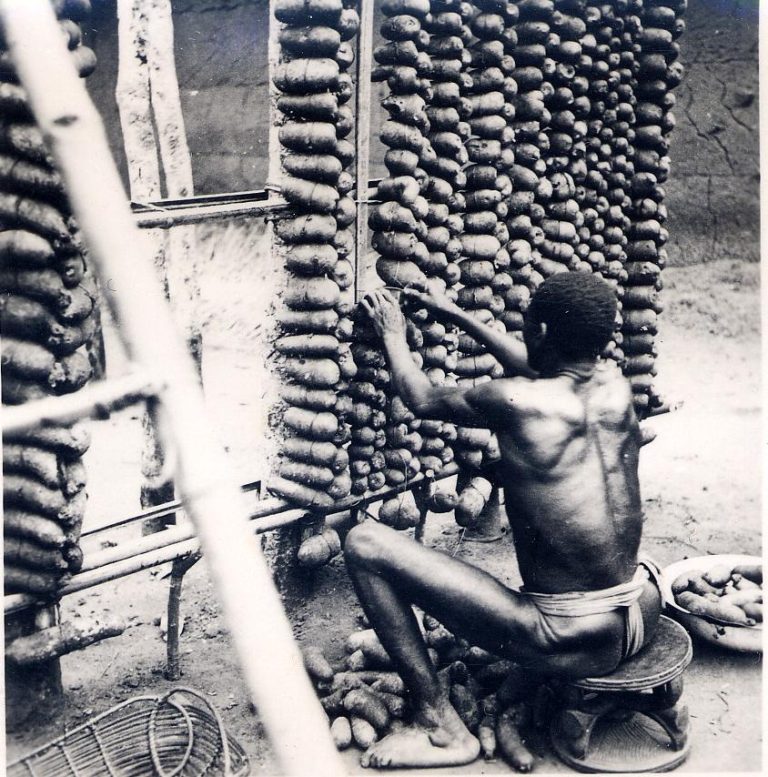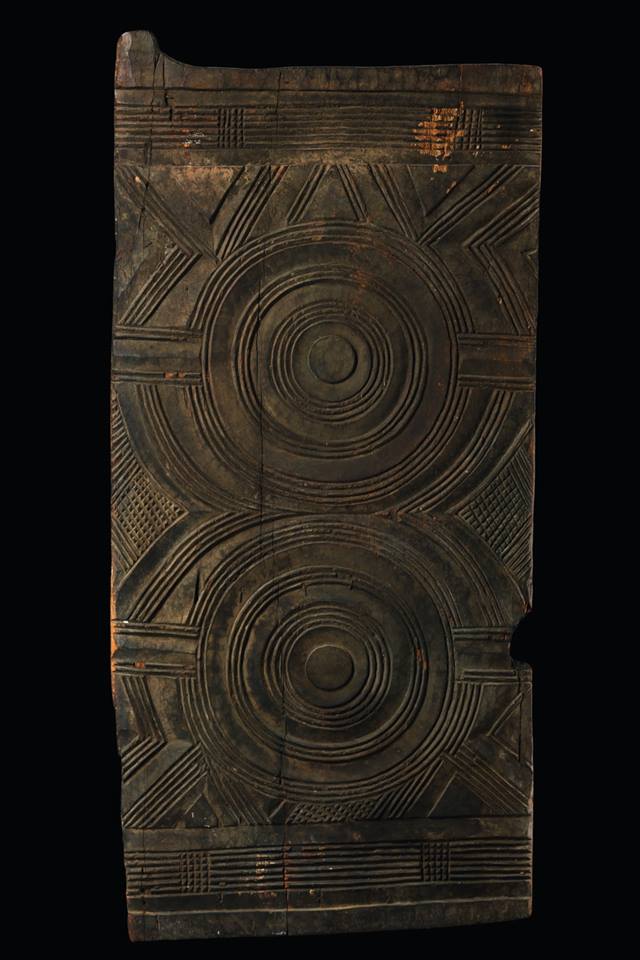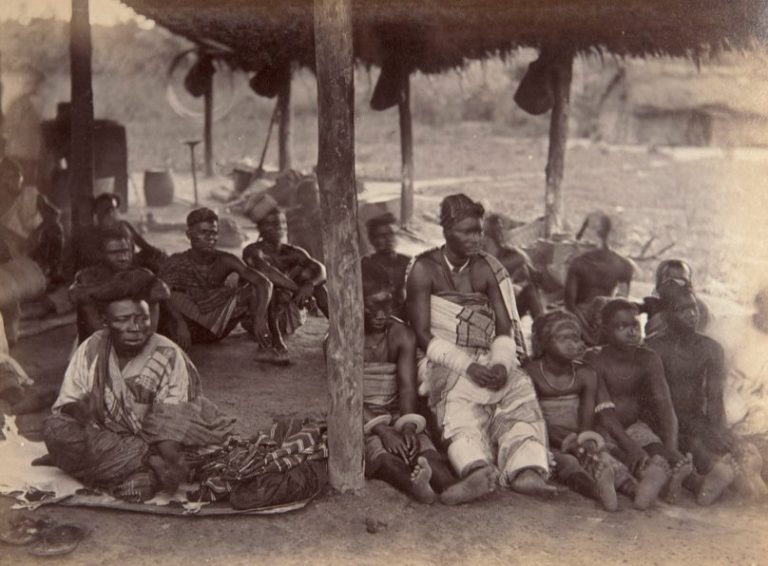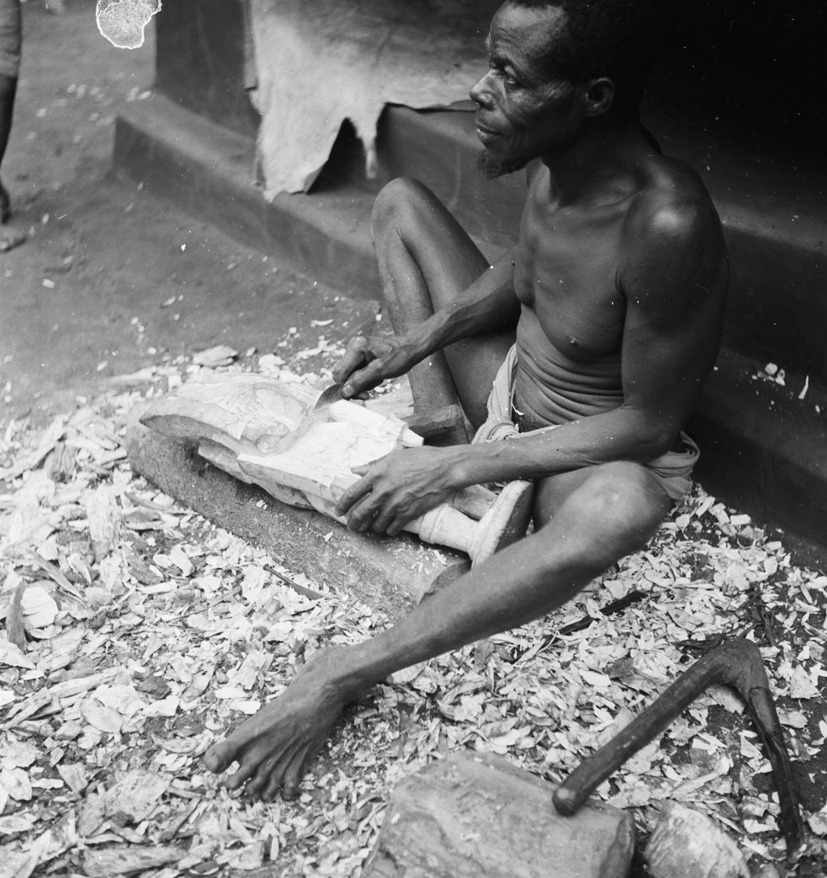
This photograph captures a wood carver from Nri-Awka Igbo at work. His hands skillfully shape the wood, transforming it into a powerful figure: an Ikenga. In Igbo culture, the Ikenga is more than just a sculpture. It’s a symbol carved from wood, representing an individual’s potential for achievement, success, and even their destiny.
Let’s explore the world of Ikenga, the meaning behind this symbol, and the role it plays in Igbo traditions.
The Ikenga
The word “Ikenga” literally translates to “strength of movement” in Igbo. It embodies the concept of “chi,” a personal spiritual force that guides an individual’s life journey. The Ikenga statue acts as a physical representation of this chi, a constant reminder of the owner’s inner power and potential.
Traditionally, Ikenga figures are linked to the right hand, symbolizing action, power, and the ability to shape one’s own destiny. Owning an Ikenga is a privilege often bestowed upon men who have demonstrated dedication, hard work, and achievements throughout their lives. In some cases, exceptional women of high standing in the community may also possess an Ikenga.
The Ikenga is not just a decoration; it’s a sacred object that requires care and respect. Ikenga owners traditionally make offerings to their statues, such as kola nuts, palm oil, or even animal sacrifices, to seek blessings and continued guidance on their path to success. These offerings serve to strengthen the connection between the owner and their chi, represented by the Ikenga.
Throughout a person’s life, the Ikenga remains a constant companion. It serves as a source of motivation, reminding the owner of their goals and aspirations. Regular care and offerings ensure the Ikenga’s continued potency, bringing fortune, protection, and fulfillment to its owner.
Beyond Personal Achievement
The significance of Ikenga extends beyond the individual. In some cases, larger communal Ikenga figures represent the collective aspirations and well-being of a family, village, or age group. These communal Ikenga receive offerings and serve as a focal point for collective prayers and rituals aimed at ensuring success in various aspects of community life.
The presence of a communal Ikenga strengthens the bonds within the community and emphasizes the importance of working together for shared goals.
The Ikenga continues to be a powerful symbol in Igbo culture, even in the modern world. It serves as a reminder of the importance of hard work, dedication, and the pursuit of personal achievement. The Ikenga also emphasizes the role of the community in supporting individual success.
What do you find most inspiring about the symbolism of the Ikenga? Have you encountered Ikenga statues in your travels? Share your thoughts and experiences in the comments below!
Explore Further
For a deeper understanding of Ikenga and its significance in Igbo culture, consider exploring these resources:
 Recommended Books
Recommended BooksTitle: Art of Eastern NigeriaAuthor: Gwilliam I. JonesPublisher: Cambridge University PressPublication Date: August 31, 1984Format: HardcoverPages: 240ISBN-10: 0521259274ISBN-13: 978-0521259279Language: English Overview “Art of Eastern Nigeria” by Gwilliam I. Jones is a significant work that explores the rich artistic traditions of Eastern Nigeria. This book provides a comprehensive analysis of the region’s art forms, examining their cultural, historical, and social contexts. About the Author Gwilliam […]
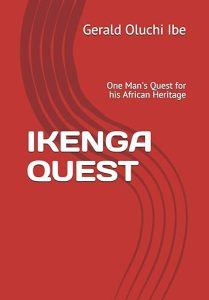 Recommended Books
Recommended BooksTitle: IKENGA QUEST: One Man’s Quest for His African HeritageAuthor: Gerald Oluchi IbePublisher: Independently publishedPublication Date: July 2, 2018Format: PaperbackPages: 513ISBN-10: 1983399302ISBN-13: 978-1983399305ASIN: B0B4SJH4SMLanguage: English Overview “IKENGA QUEST” by Gerald Oluchi Ibe is a compelling narrative that intertwines personal struggle, ancient African heritage, and historical events. The story follows Umemnaeku, a sick teenage boy in […]
Discover more from Igbo Archives
Subscribe to get the latest posts sent to your email.

